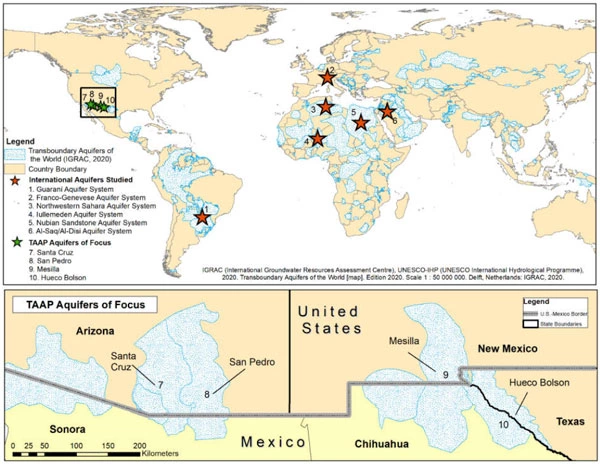February 18, 2021
Water
,
13 vol.
,
no. 4
,
21 pp.
,
MDPI
,
Basel, Switzerland

The assessment of transboundary aquifers is essential for the development of groundwater management strategies and the sustainable use of groundwater resources. The Transboundary Aquifer Assessment Program (TAAP) is a joint effort by the United States and Mexico to evaluate shared aquifers. This study examines the TAAP Cooperative Framework as a guide for further transboundary groundwater collaboration. We compared lessons learned from six transboundary aquifers that currently have mechanisms for groundwater collaboration to identify common elements of collaboration. Though the TAAP Cooperative Framework governs an assessment-only program, the elements of collaboration included are consistent with the principles of other institutional agreements around the world. Importantly, all the analyzed agreements included a knowledge-improvement phase, which is the main objective of the TAAP Cooperative Framework. The present study finds evidence of successful outcomes within the TAAP Cooperative Framework consistent with available transboundary groundwater management agreements, demonstrating that this approach is suited to serve as a model for those wishing to engage in transborder aquifer assessments. Furthermore, the TAAP elements of collaboration can help to establish the meaningful and robust binational cooperation necessary for the development of U.S.-Mexico groundwater management agreements at the aquifer level.

